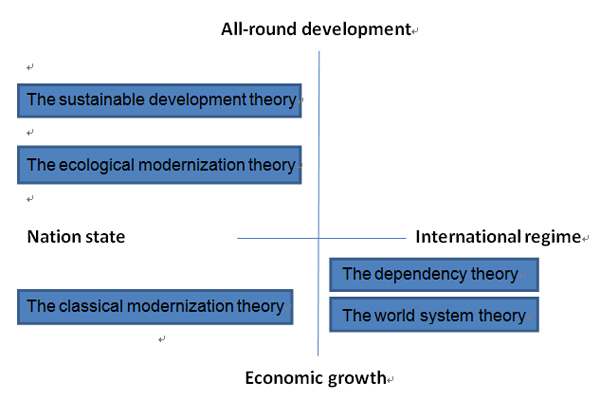Collaborative Modernization
-- The Essence of “the Belt and Road Initiative”
- By Ke Yinbin
 0 Comment(s)
0 Comment(s) Print
Print E-mail China.org.cn, October 28, 2015
E-mail China.org.cn, October 28, 2015
Core keywords: "common" and "modernization"
The above contents contain around 1,500 words, and, on first examination, it seems difficult to summarize what the B&R Initiativeis all about in one sentence. Based on a further analysis, however, the author finds that two keywords are most important.
One is the word "common." Firstly, the word "common" appears many times. During the keynote speech delivered by President Xi at the 2015 annual conference of the Boao Forum for Asia, the word is mentioned 29 times, "community" 14 times, "common development" 6 times and "win-win" 8 times. In the document "Vision and Actions on Jointly Building Silk Road Economic Belt and 21st-Century Maritime Silk Road" jointly issued by the National Development and Reform Commission, the Ministry of Foreign Affairs, and the Ministry of Commerce, the word "common" appears 25 times, "jointly building" 22 times and "shared benefits" 3 times. Secondly, the word "cooperation," implying a "common" approach, appears many times too. During the keynote Boao Forum speech by President Xi, the word "cooperation" is mentioned 34 times; in the document "Vision and Actions on Jointly Building Silk Road Economic Belt and 21st-Century Maritime Silk Road," it appears 136 times. So, from the perspective of text analysis alone, "common" is one of the core keywords for the B&R Initiative.
The other word is "modernization." Unlike the word "common" that appears directly, there is no direct use of "modernization" in the two documents mentioned above. However, the author has come to the conclusion that in essence "modernization" is also one of the core keywords of the B&R Initiative. The main reasons are: firstly, the word "development" is similar in meaning to "modernization," and that appears many times in the two documents. During President Xi's speech, for example, it is mentioned 56 times; in the document "Vision and Actions on Jointly Building Silk Road Economic Belt and 21st-Century Maritime Silk Road," it appears 35 times. Secondly, a careful analysis of the main contents of the B&R Initiative in the official documents shows that it's appropriate to summarize them with the word "modernization" or "development."
Therefore, the author believes that "common" and "modernization" are the core keywords of the B&R Initiative. Then, is there a term like "collaborative modernization?" What's it like? Those are the questions the author has been recently thinking about. Here, the author puts forward his initial answers for your comment.
What is "collaborative modernization?"
Let's first look at modernization as a term used in the past and its related theories. We choose some of the most influential theories as the focus of analysis, namely, the classical modernization theory, dependency theory, world system theory, ecological modernization theory and sustainable development theory.
In order to briefly clarify them, we have designed a standard of classification, that is, the existing modernization theories can be classified in two categories -- nation state/international regime and economic growth/all-round development. The first category describes the main body of modernization, namely, who is in the process of modernization? Is it nation-state-oriented or international-regime-oriented? Nation-state-centered orientation means focusing on a nation state's internal development to promote its own interests; an international-regime-centered orientation refers to focusing on the common development of a number of countries in an international regime based on shared interests. The second category describes the goals of modernization, namely, why do we carry out modernization? Does it focus on economic growth or all-round development? All-round development includes not only development in the economic, political, cultural and social sectors, but coordinated development between human society and their ecological environment.
A preliminary collation and analysis of the above modernization theories shows that, firstly, the classical modernization theory is nation-state-oriented and focuses on economic growth; second, the dependency theory and world system theory are international-regime-oriented and also focus on economic growth; third, the ecological modernization theory and sustainable development theory focus on all-round development (mainly referring to the coordinated development of the economy and ecological environment), but are still nation-state-oriented, as illustrated below.
 |



Go to Forum >>0 Comment(s)